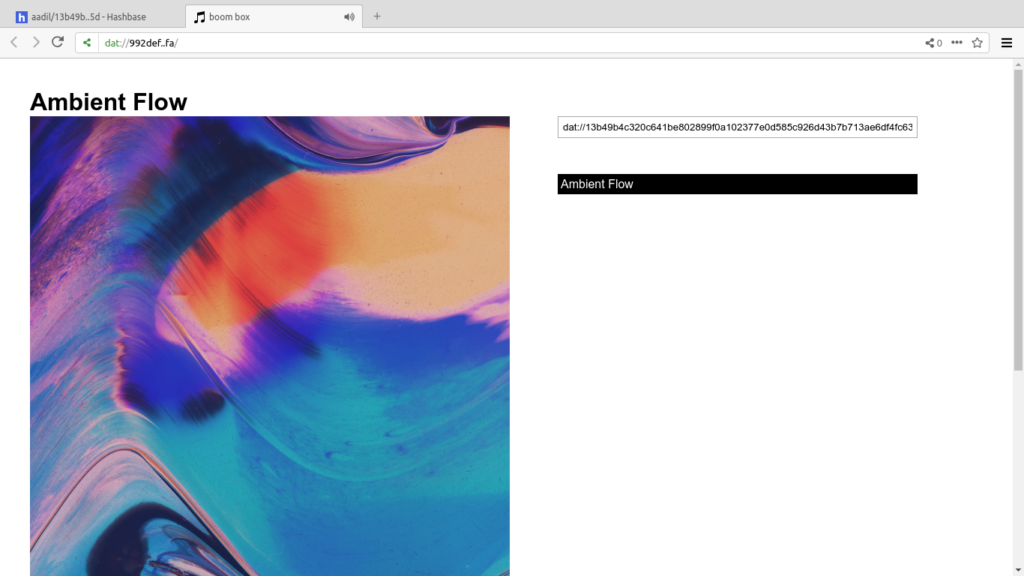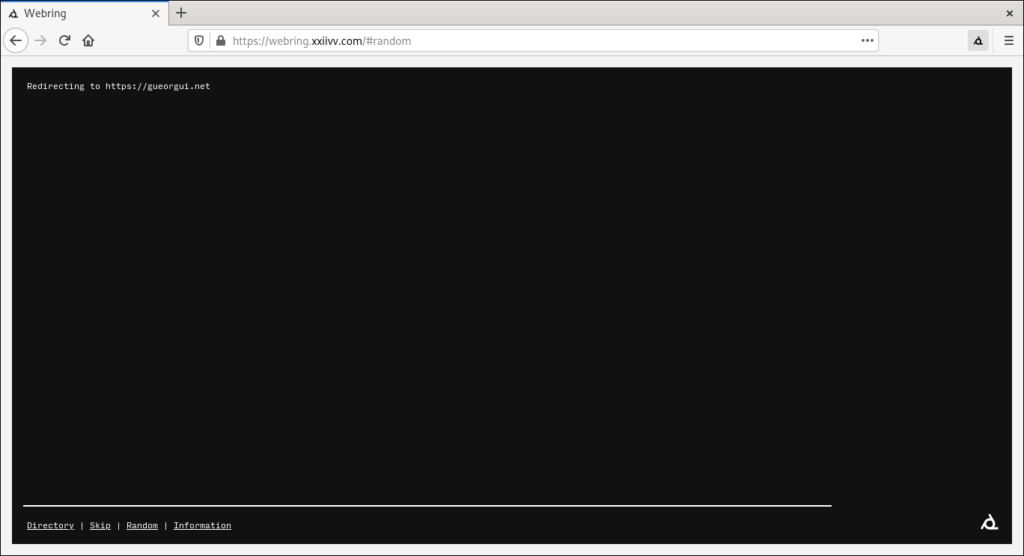Playing with PICO-8 on Regolith Linux 👾


A collage of the track, ‘A Clearing’ by Brian Eno, and spoken narration by Attiya Dawood of her story, ‘Asha’s Desire’ for Karachi Beach Radio.


Art by Chris Austin
Filming @suhaee dancing improv on her roof
Music: Miharu Koshi & Haruomi Hasono 1Filming these is surprisingly strenuous. You have to keep moving to keep the dancer in frame and accentuate their movements. It’s much as a dance between the camera and the subject.
Made a p2p mixtape, using boom-box, in Beaker Browser

For the intended listening experience, navigate to dat://boom-box.hashbase.io in Beaker Browser, and paste in this url:
dat://13b49b4c320c641be802899f0a102377e0d585c926d43b7b713ae6df4fc63a5d
I made my first Firefox extension!

It adds a button to your browser toolbar that takes you to a random site from the merveilles webring.
From Permanent Record by Edward Snowden:
How can I explain it, to someone who wasn’t there? My younger readers, with their younger standards, might think of the nascent Internet as way too slow, the nascent Web as too ugly and un-entertaining. But that would be wrong. Back then, being online was another life, considered by most to be separate and distinct from Real Life. The virtual and the actual had not yet merged. And it was up to each individual user to determine for themselves where one ended and the other began.
It was precisely this that was so inspiring: the freedom to imagine something entirely new, the freedom to start over. Whatever Web 1.0 might’ve lacked in user-friendliness and design sensibility, it more than made up for by its fostering of experimentation and originality of expression.
As the millennium approached, the online world would become increasingly centralized and consolidated, with both governments and businesses accelerating their attempts to intervene in what had always been a fundamentally peer-to-peer relationship. But for one brief and beautiful stretch of time—a stretch that, fortunately for me, coincided almost exactly with my adolescence—the Internet was mostly made of, by, and for the people. Its purpose was to enlighten, not to monetize, and it was administered more by a provisional cluster of perpetually shifting collective norms than by exploitative, globally enforceable terms of service agreements. To this day, I consider the 1990s online to have been the most pleasant and successful anarchy I’ve ever experienced.
I think this explains what it is that I love so much about alt-web spaces like the fediverse, Scuttlebutt, and the decentralized web in general.